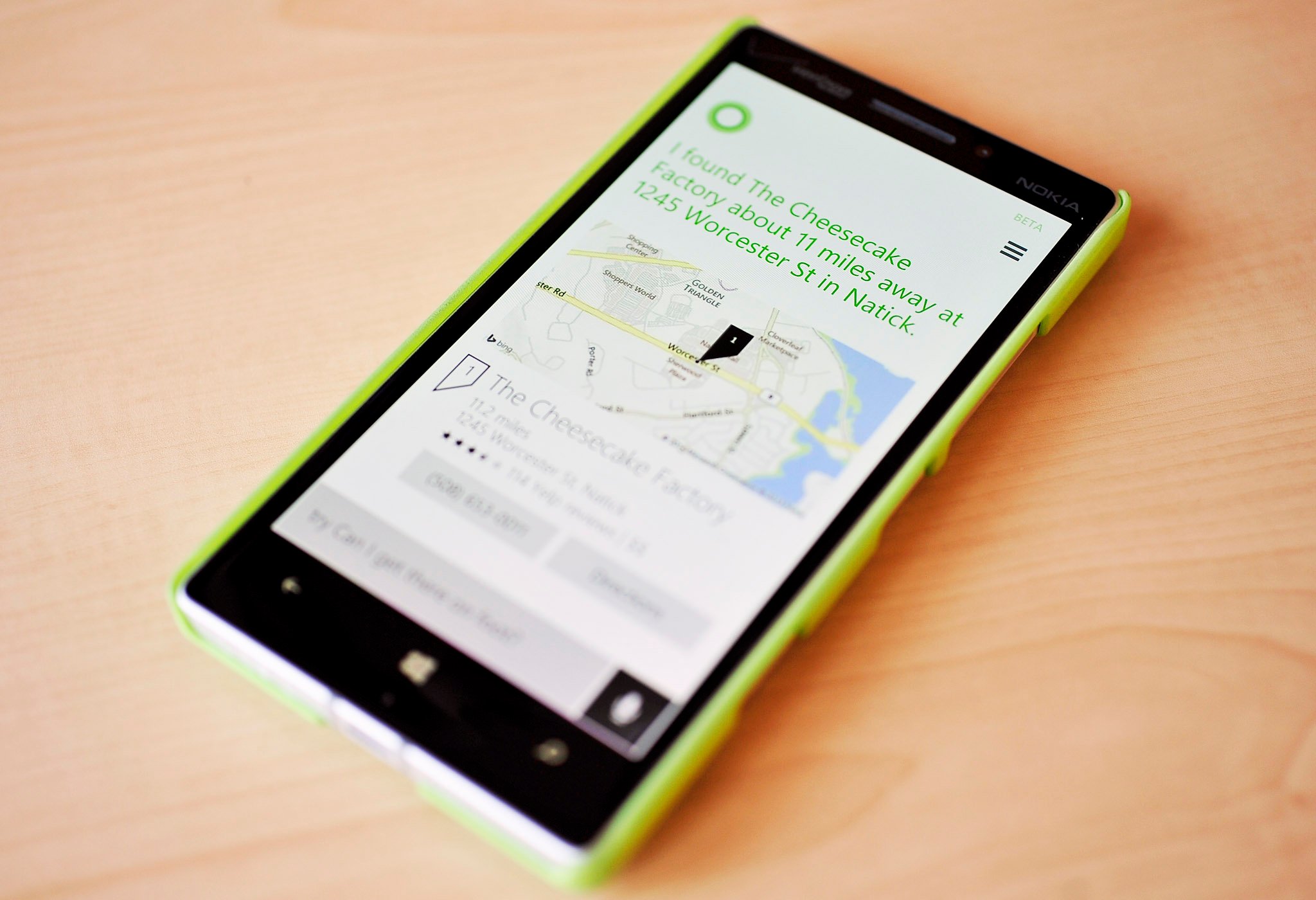This is how Cortana got started and why more countries will get Microsoft's assistant soon

Cortana is certainly the most headline worthy new feature of Windows Phone 8.1, even though the OS update has much more than a personal assistant going for it. With comparisons to Siri and Google Now, the Halo-inspired voice helper garners some needed headlines for Microsoft as they continue their entrenched battle in mobile.
Recently, Marcus Ash, who is the group program manager for Cortana on Windows Phone, was seen on camera explaining the priorities for Cortana, including entertaining the idea of putting it on other operating systems like Android or iOS. That controversial position was later clarified in a follow-up comment on our site, alleviating some concerns of Windows Phone adherents.
Today, in a second video, Ash explains the origins of Cortana's development, and how the team is "shocked by the international reaction."
In the video, recorded last week during a Q&A session at Microsoft's main campus, Ash reveals quite a few interesting bits about Cortana's beginnings:
"There's this general curiosity with – it's kind of hard to describe, but – Siri and AI systems and clever phones that can do these interesting functions that feel like the next user interface revolution. You know if you look at the big inflections where different things happen to change – like the industry leaders tend to have these big shakeups – it's usually when you have some kind of new user interface paradigm that's introduced. Mouse, keyboard, touch – all the sudden you see people's patterns change.""So we got a lot of feedback around, well, maybe this whole virtual assistant, personal assistant is the next thing. Like, this thing I could talk to that would do things on my behalf. That represents a new interface. It feels kind of interesting. So we did all that work and we surveyed the competitive landscape. We landed on this concept of Cortana..."
Regarding the notion of Cortana being labeled as a beta, Ash confirms that it is due to the massive amounts of data needed to hone Cortana's skills, to make the AI as competitive if not more than Apple's Siri and Google Now:
"We launched it as a beta primarily because of the data collection requirements. For these systems to get really good, you just have to collect a lot of data. There's just no short cutting it. We have to collect thousands of hours of recording from a variety of different people in different countries with different accents to train the speech language system. You got to see what people are searching for and have this whole intent classification system and look at when you're going to the web versus when we should've understood what you wanted. And there's a bunch of machine-learning algorithms that just need tons and tons of data."
Subsequently that beta tag should be expected to stay "through the first wave of consumer devices."
Later on in the video, Ash discusses the complicated and thorny issue of rolling Cortana out to non-US markets. According to Ash, even though Cortana is currently only for those in the US, half of its users are now global. That figure "shocked" the Cortana team because it means users had to change their region to enable the voice assistant, which demonstrates how eager people are to adopt Cortana today. Consequently, the Cortana team is now re-thinking their rollout plans:
All the latest news, reviews, and guides for Windows and Xbox diehards.
"Probably the number one source of feedback Joe and I, both Joe Belfiore and I both get on Twitter, is when's it coming to India, when's it coming to Spain, Italy, the UK, Canada, Australia. Go Canada. My mom's from Canada. She's not happy with me because we keep putting out features and then we act like Canada's just so hard. She's just like, conceptually she's just like, I don't understand. Why is Canada so hard. We speak English. I'm like, I know mom. It's complicated.""So we get a lot of feedback on that and I think the early reception and just this kind of groundswell of, I want to use it even though it's not my native language, actually caught us by surprise and is exciting and has really pushed us to think about how quickly we should be releasing these markets."
As a result of outpouring of enthusiasm from users, Microsoft is considering a wider deployment of Cortana to other regions even before it is correctly localized, perhaps dropping the beta tag for those users and calling it "Alpha or something":
"So I think you'll see a lot of movement on that front in the next six months. I think this – the number one priority for the team is get this in the hands of as many customers as possible. We're certainly trying to expand the feature set but I think we're more interested in getting it out to consumers, seeing how they react to the current features and then getting out to more consumers. The best way for us to do that is to expand aggressively internationally."
The origins of Cortana, including the original Halo inspiration, is certainly an interesting bit of trivia. Perhaps even more attention-grabbing is the mass adoption of Cortana by non-US users. While it's not hard to enable Cortana on phones outside of the US, it's not something most casual users would engage in, or at least that's what the Cortana team thought. More specifically, it's perhaps odd that non-English speaking users will want to use, with frequency, an English-based voice assistant. With Cortana arriving in China and the UK in the "coming weeks," at least some of that frustration will be eased, though Microsoft clearly has a lot of work left ahead.
Source: Mark Guim (Twitter)

Daniel Rubino is the Editor-in-chief of Windows Central. He is also the head reviewer, podcast co-host, and analyst. He has been covering Microsoft since 2007 when this site was called WMExperts (and later Windows Phone Central). His interests include Windows, laptops, next-gen computing, and wearable tech. He has reviewed laptops for over 10 years and is particularly fond of 2-in-1 convertibles, Arm64 processors, new form factors, and thin-and-light PCs. Before all this tech stuff, he worked on a Ph.D. in linguistics, performed polysomnographs in NYC, and was a motion-picture operator for 17 years.

